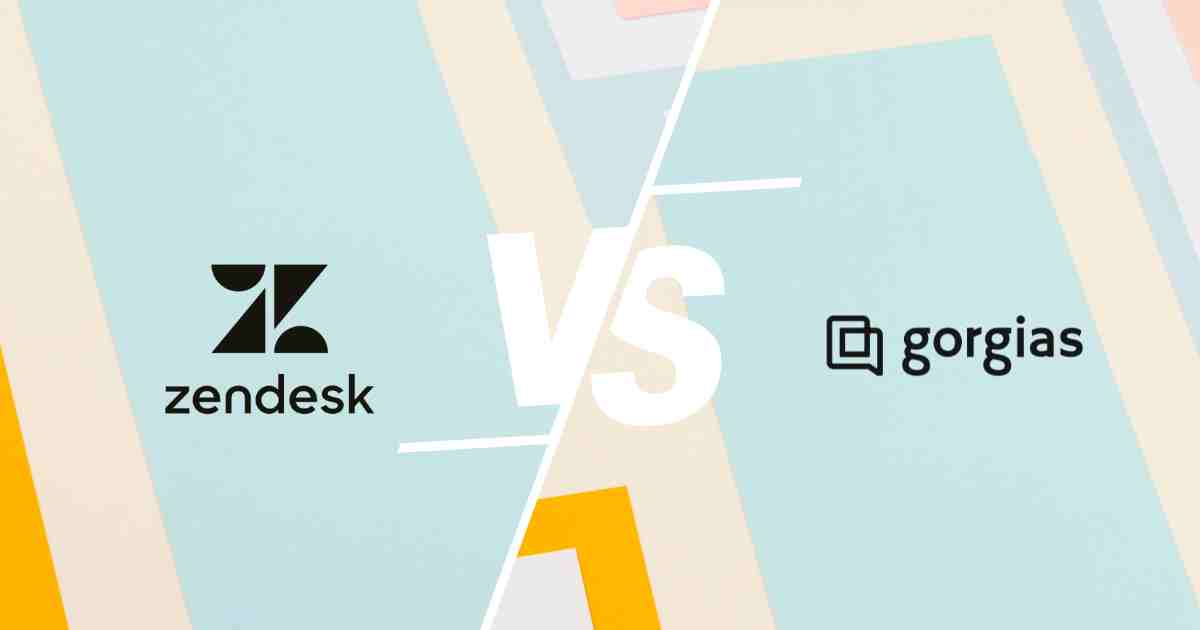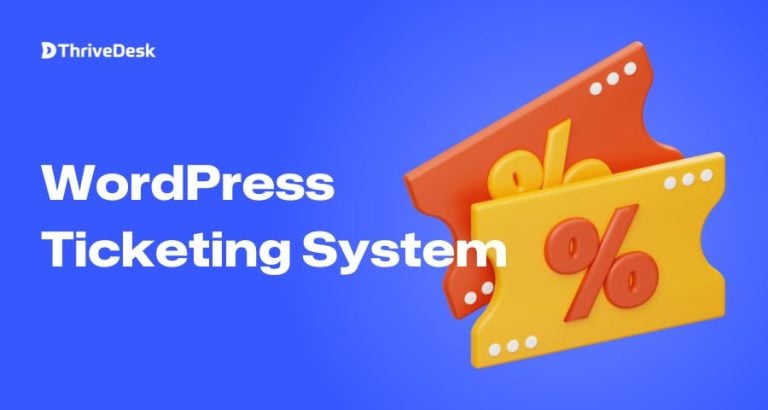Looking for Intercom alternatives because your wallet is crying? We get it—and we’re here to help, even though we’re technically one of your options.
We know Intercom is polished, powerful, and everywhere. But sometimes “powerful” feels more like “overwhelming,” and “polished” feels more like “expensive.” Sometimes you need something that does the job without the premium price tag or complexity that makes your team need a PhD to send a simple customer reply.
We’ll admit it: this won’t be the most objective list out there. We know our own support software inside and out, so naturally it’s the one we recommend with confidence.
But we’ve talked to enough teams to know one size never fits all. Maybe you need something simpler than Intercom’s enterprise-focused approach, or perhaps you’re looking for better value without sacrificing features.
Intercom just isn’t your perfect match (and hey, ThriveDesk might not be either), and that’s okay. We hope you’ll give ThriveDesk a try after reading — if it’s not the one, we’ll gladly point you to other great options below.
5 Intercom alternatives
Simply the best (dun dun dunnn, better than all the rest): 5 Intercom alternatives for 2026

Helpdesk Cost Calculator
Stop guessing. Compare real monthly costs for ThriveDesk, Freshdesk, Gorgias, Intercom, and more based on your team size and feature needs.
To save you from endless tabs, we pulled all the key data into one spreadsheet that helps you find Intercom alternatives and competitors on data points like pricing, documentation, and customer support. The data is accurate as of Sep 20, 2025.
We’ll walk you through some of the strongest alternatives in the market, including ourselves, of course. Whether you’re a lean eCommerce shop or a growing SaaS team, there’s an option out there that won’t drain your budget or sanity.
1. ThriveDesk (hi 👋)
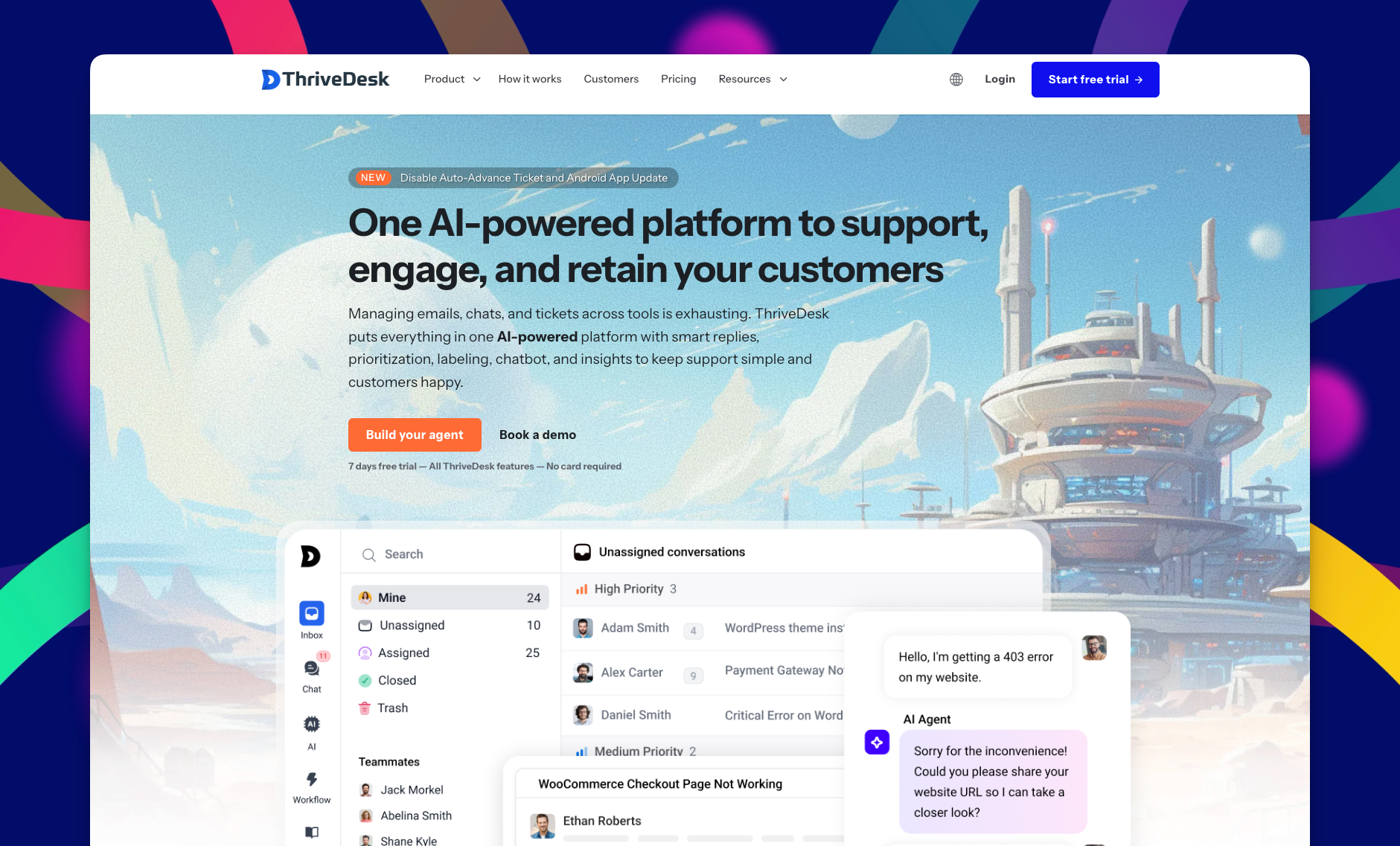
ThriveDesk was built for small businesses and eCommerce teams that want powerful customer support tools without the complexity or enterprise-level bloat. Founded by a team who once struggled with expensive and confusing platforms, ThriveDesk combines everything you actually need such as helpdesk, live chat, chatbot, and knowledge base in one lightning-fast workspace.
It is designed to be simple where it should be and smart where it matters. From AI automation to deep eCommerce integrations, ThriveDesk helps teams deliver personal, efficient, and human support that customers love.
AI Helpdesk built for speed, clarity, and growth
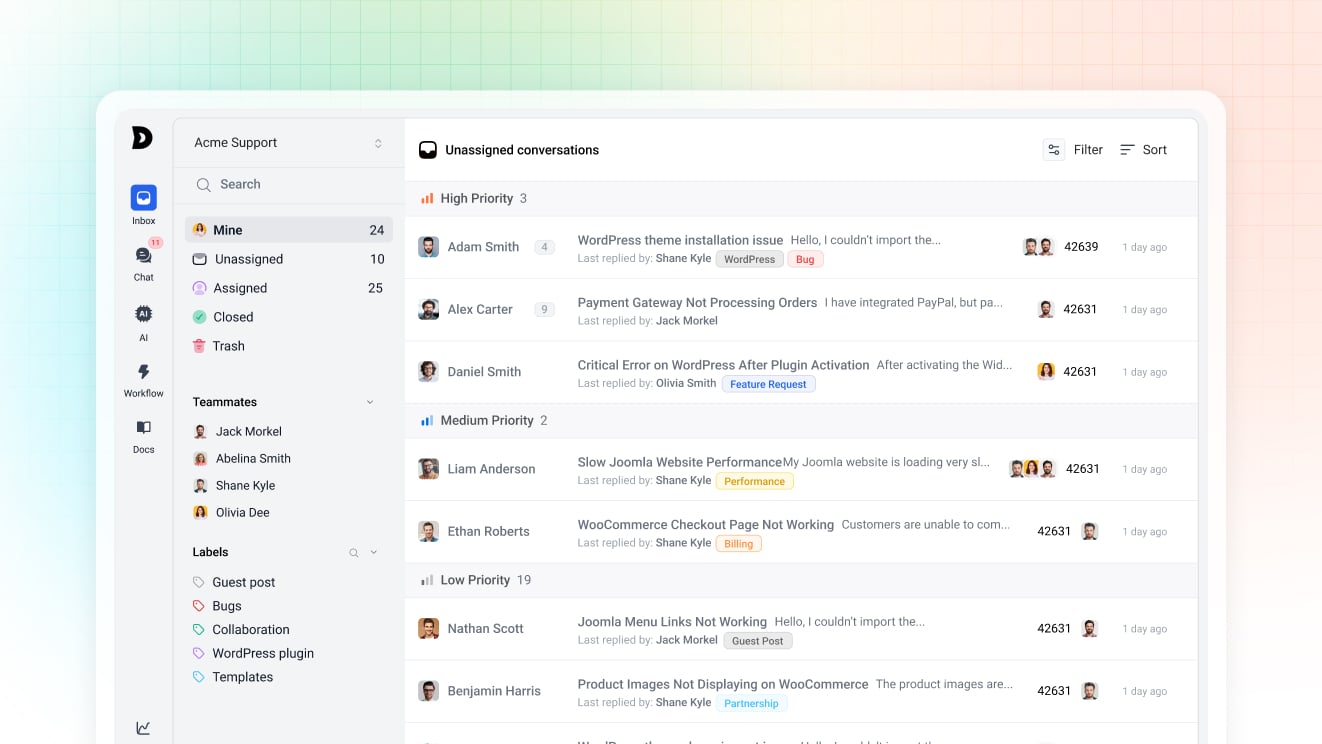
ThriveDesk’s buzón compartido keeps your entire support team on the same page. It helps you manage customer conversations from email, chat, and other channels in one clean, unified view. No more messy threads or duplicate replies. Everyone sees the full picture.
Key features:
- Custom view: Build your own filtered inboxes by status, tag, priority, or assignee so every agent can focus on what matters.
- Detección de colisiones: Instantly see when someone else is replying so you never send duplicate answers.
- Respuestas guardadas: Create reusable responses for common questions to save time and keep your tone consistent.
- Continue from your own email: Agents can reply directly from their own email client while keeping everything synced in ThriveDesk.
- Assignment and rules: Automatically assign tickets to the right team members based on tags, subjects, or priorities.
- Historia de la conversación: See the entire context of every customer interaction in one place for faster, more accurate replies.
- Etiquetas and custom fields: Categorize and organize conversations to track issues and performance easily.
AI agents that makes customer support effortless
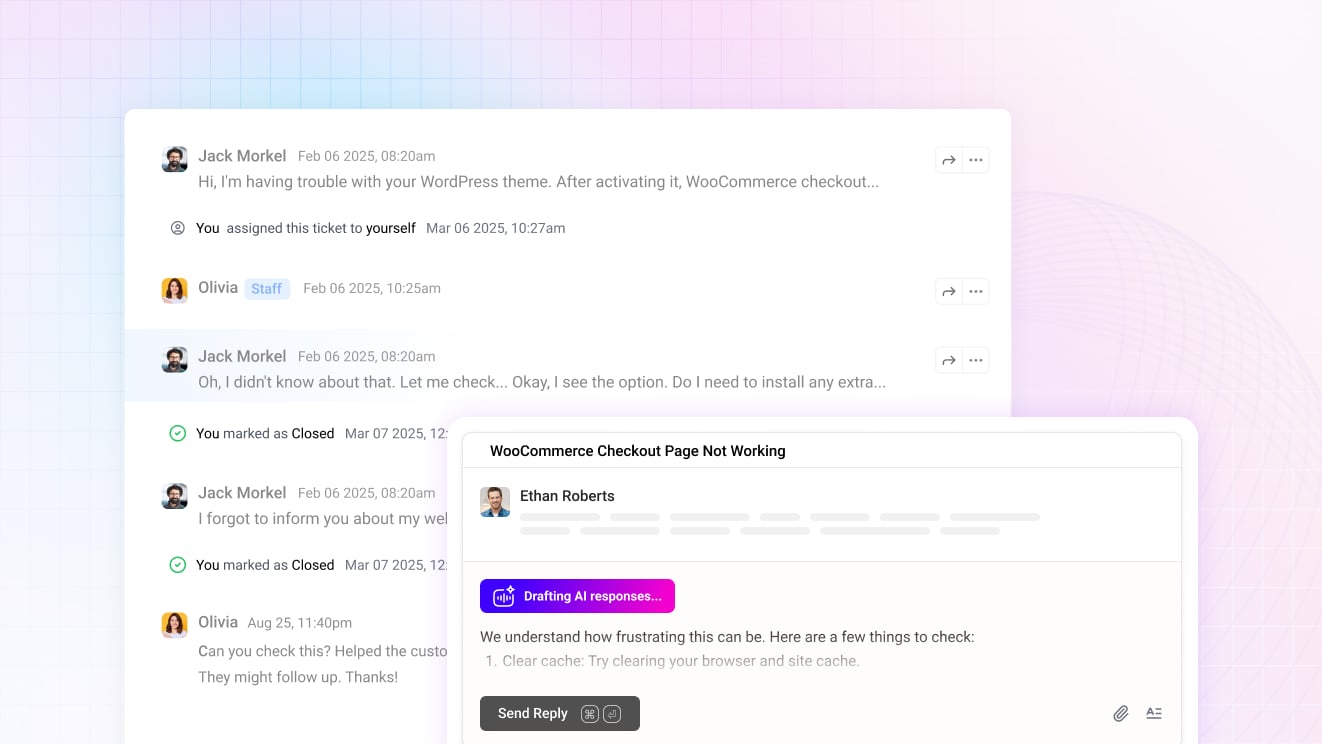
ThriveDesk uses AI to make customer support faster and smarter without removing the human touch. These tools help your team respond quickly, automate routine work, and maintain consistent quality.
AI features:
- Asistencia AI: Expand, shorten, or translate messages instantly to match tone and context.
- AI Summarize: Get concise summaries of long tickets or threads to understand issues at a glance.
- AI Draft: Generate helpful, ready-to-send replies for faster response times.
- AI Auto Reply: Automatically respond to common questions while your team focuses on complex ones.
- AI Chatbot: Neo, the built-in AI chatbot, helps customers 24/7 and can even collect leads or guide purchases.
- Automatización del flujo de trabajo: Set triggers and rules to automate repetitive actions like ticket assignment, tagging, or follow-ups.
End-to-end AI Assistant for conversational support
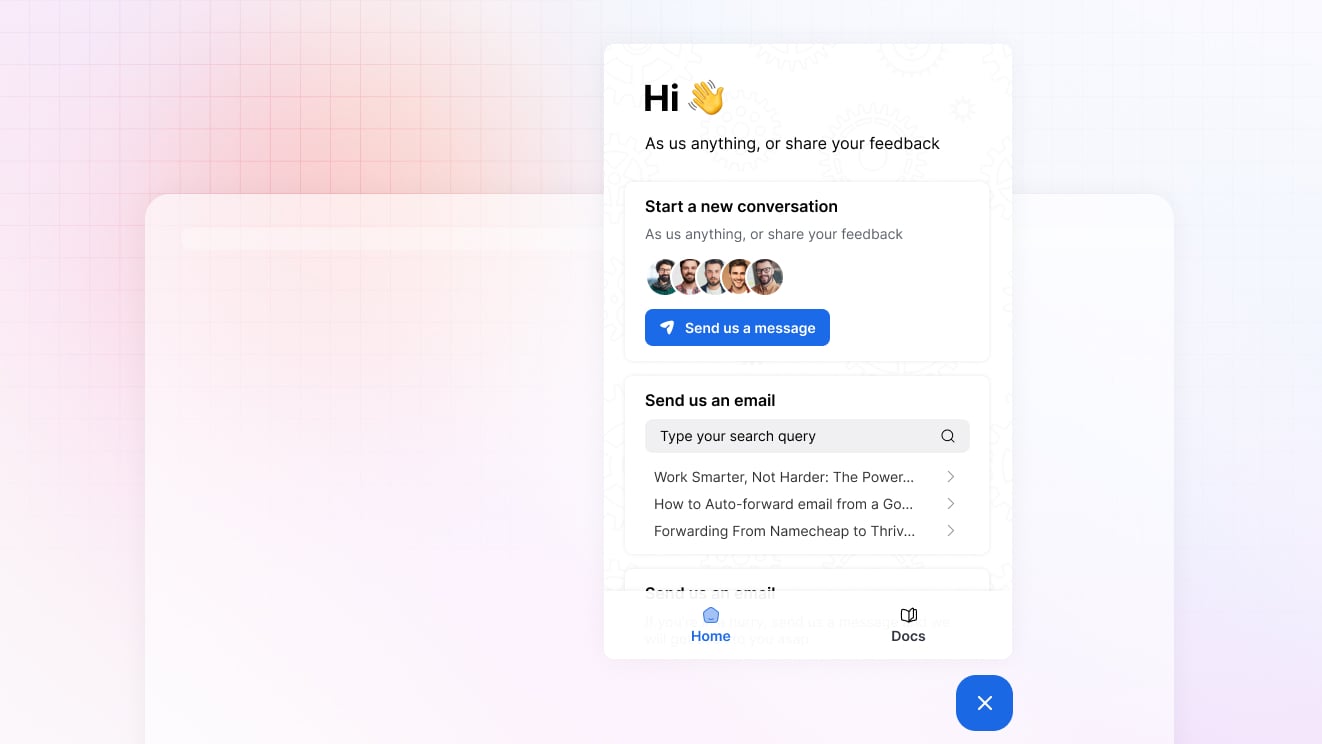
ThriveDesk’s Assistant widget adds instant customer support to your website. It brings together chat, contact forms, order tracking, and your knowledge base in one elegant widget your customers will actually enjoy using.
Inside the widget:
- Chatbot: Let Neo greet customers, answer FAQs, and guide them toward solutions automatically.
- Contact form: Capture inquiries directly from your site and route them into your shared inbox.
- Order check: Integrate with your store so customers can check order status without contacting support.
- Base de conocimientos: Let users search articles right inside the chat widget for quick self-service answers.
eCommerce and SaaS Integrations
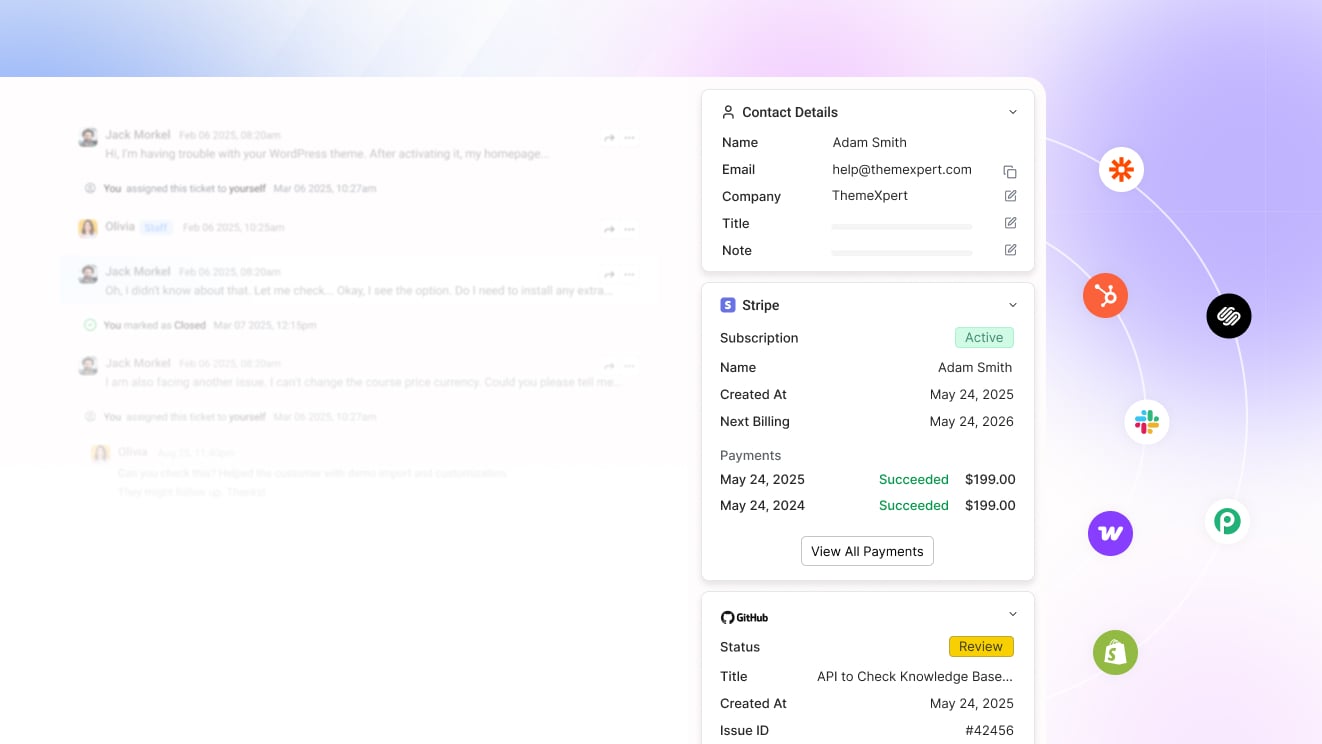
ThriveDesk connects seamlessly with the tools your business already uses. These integrations pull in customer and order data automatically so your agents have full context without switching apps.
Supported integrations:
- Raya: View and manage billing and payment history directly from your helpdesk.
- Pádel: Handle subscription or license-related tickets with live Paddle data inside conversations.
- WooCommerce: See order details, update statuses, and assist customers without leaving ThriveDesk.
- SureCart: Access purchase information and resolve support issues faster with native SureCart integration.
Help Center – Self-Service Knowledge Base

Empower customers to find answers on their own with ThriveDesk’s Centro de ayuda. It is simple to build, beautiful to read, and powered by AI to make support scalable.
Características:
- AI writing: Generate clear, consistent articles from short prompts or ticket replies.
- Notion-like editor: Write and format with ease using a smooth, block-based editor that feels natural and modern.
- AI search: Help customers find exactly what they need with smart, context-aware search powered by AI.
Precios de ThriveDesk
ThriveDesk uses straightforward pricing based solely on the number of inboxes per month. Here’s a pricing snapshot:
- Básico: $29/mes
- Estándar: $69/month
- Unlimited: $129/month
💛 Friendly tip: Many tools look affordable at first but get expensive once you add extra fees for agents, overages, or “premium” support. ThriveDesk is the only provider on this list that gives you unlimited agents on Unlimited plan and never charges extra for support.
One final thing…
We think you’ll like knowing there are real humans behind this product. We’re a nimble team, part remote and part in-office, working side by side to build mighty things. We love doing team activities and regular outings, because building great software is easier when you actually enjoy the people you work with.


Helpdesk Cost Calculator
Stop guessing. Compare real monthly costs for ThriveDesk, Freshdesk, Gorgias, Intercom, and more based on your team size and feature needs.
2. Freshdesk
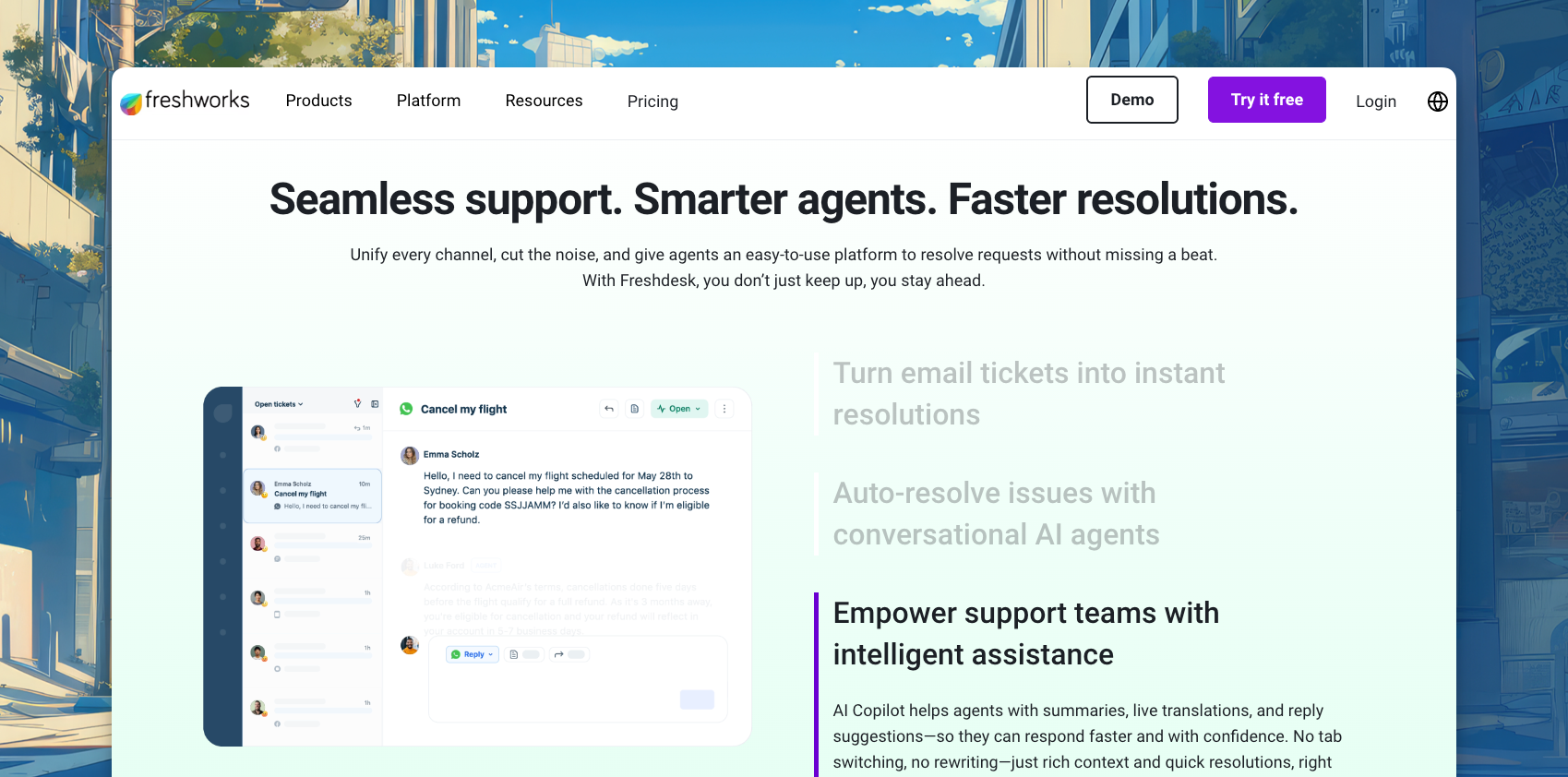
Freshdesk is one of the most recognizable names in customer support software. Founded in 2010 by Freshworks, it’s built to cover everything from ticketing to automation, and it’s especially popular with startups and mid-sized businesses looking for a Zendesk-style platform at a friendlier price point
👍 Pros
- Generous free plan: Unlike most competitors, Freshdesk offers a genuinely useful free plan for up to 2 agents that includes ticketing, knowledge base, and basic reports.
- Traditional ticketing approach: If Intercom’s conversation-first approach feels too casual, Freshdesk’s ticket-based system provides the structure many support teams prefer.
- Extensive customization options: From custom objects to advanced routing, Freshdesk lets you tailor the platform to match your specific workflow needs.
- Multi-product ecosystem: Being part of Freshworks means easy integration with their CRM, marketing automation, and IT service management tools.
👎 Cons
- Complexity creeps in: The platform can feel overwhelming as you scale, with layers of settings buried in menus.
- Limited modern communication channels: Works great for email and basic chat, but lacks seamless integration with modern messaging platforms compared to Intercom.
- Multi-tiered pricing system: What starts as simple per-agent pricing quickly stacks when you add Freshchat, Freshcaller, or Omnichannel—each sold separately.
- AI costs extra: Freddy AI adds $29/agent/month to your bill.
Precios de Freshdesk
Here’s where things get… interesting. Freshdesk uses per-agent pricing, but it’s not as straightforward as it appears on the surface.
- Free: $0 for up to 2 agents
- Growth: $15/agent/month
- Pro: $49/agent/month
- Empresa: $79/agent/month
Want live chat? That’s Freshchat (separate pricing). Need phone support? Hello Freshcaller (another bill). Omnichannel features? Fresh Omnichannel (yet another subscription).
What starts as $15/month per agent can quickly become $15 (Freshdesk) + $15 (Freshchat) + $29 (Freshcaller) = $59/agent just for basic multi-channel support.
Add AI features at $29/agent/month, and you’re looking at enterprise-level costs without the unified experience.
🎬 Fun Fact: The “Broken TV” Spark
Freshdesk exists because founder Girish Mathrubootham got terrible customer service for a broken TV. He vented about it in a Hacker News comment, which sparked conversations about building better support software.
A few months later, he quit his job at Zoho and started Freshdesk from his house in Chennai. Sometimes the best products come from genuinely frustrated customers!
Recommended Reading

5 Freshdesk alternatives, handpicked by… an Freshdesk competitor?!
3. Zendesk

The granddaddy of customer support software, Zendesk has been around since 2007. It quickly became the “enterprise default” for large companies that needed robust ticketing, reporting, and integrations. If Intercom is the sleek new car, Zendesk is the heavy-duty truck — not flashy, but it can carry a lot.
👍 Pros
- Enterprise-ready: Rock-solid infrastructure with 99.9% uptime SLA and enterprise security features that big companies actually trust.
- Massive app ecosystem: Works with just about every CRM, marketing tool, and analytics platform.
- Informes avanzados: Deep analytics and customizable dashboards that make data nerds happy.
- Multichannel mastery: Email, chat, phone, social media, and SMS all in one platform without feeling bolted-on.
👎 Cons
- Curva de aprendizaje pronunciada: Zendesk’s interface can feel clunky and overwhelming for new users.
- Expensive quickly: Basic plans look reasonable until you add phone support, advanced AI, or premium features.
- Over-engineered for small teams: If you just need simple customer support, Zendesk might be overkill.
Precios de Zendesk
Zendesk Suite plans (includes everything):
- Team: $55/agent/month
- Growth: $89/agent/month
- Professional: $115/agent/month
- Empresa: $169/agent/month
The Costco effect: That $55/month base price is just the starting point. Add AI features, premium integrations, or advanced analytics, and you’re quickly looking at $100+ per agent. It’s like ordering a car where the engine, wheels, and seats are all optional extras.
🪑 Fun Fact: The Danish Disruption
Zendesk was famously started in a loft in Copenhagen by three Danish guys with secondhand furniture from IKEA. The company went from zero to IPO in just 7 years, proving that sometimes the best way to solve a problem is to get really annoyed with existing solutions first.
Recommended Reading

5 Zendesk alternatives, recommended by… a Zendesk competitor?!
4. Help Scout
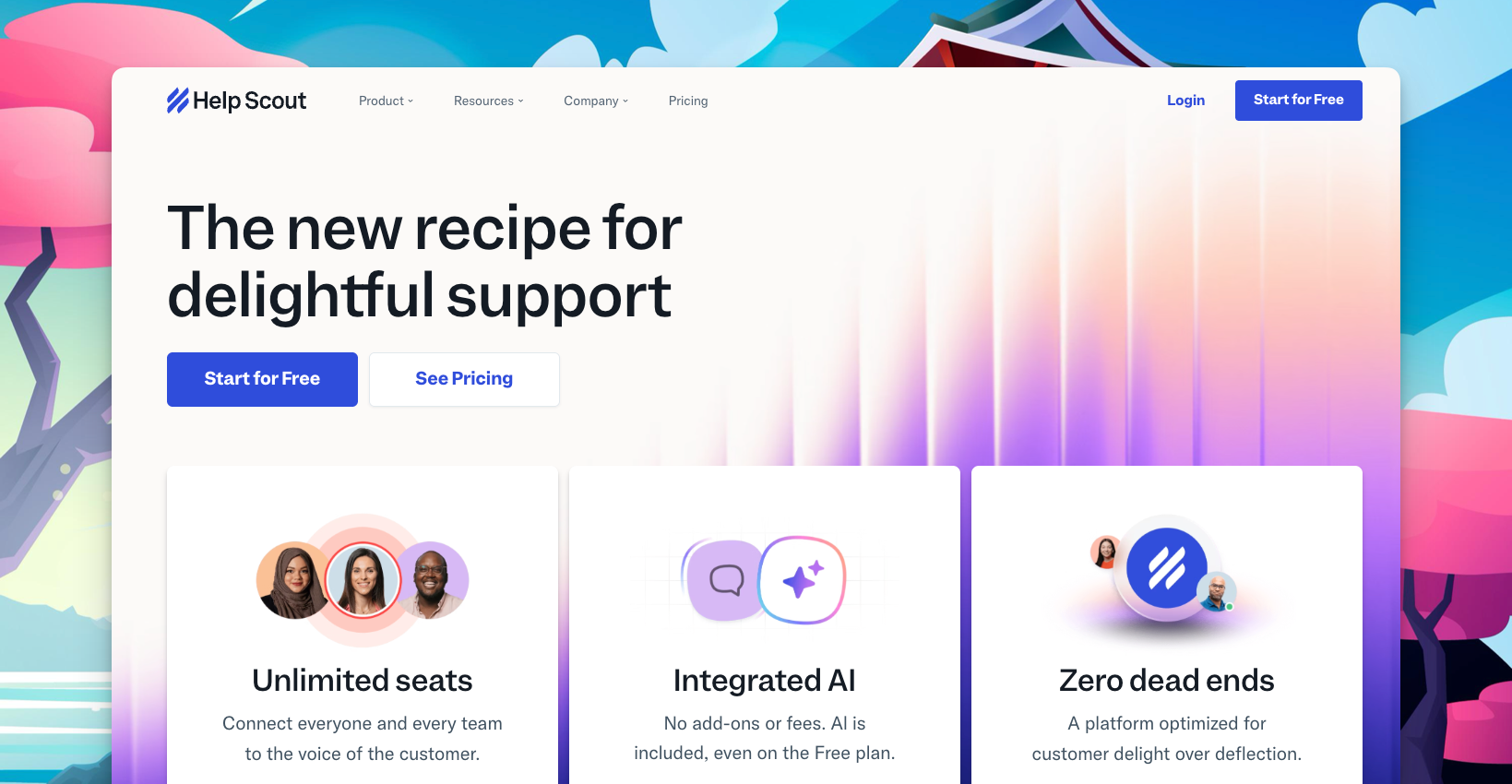
Help Scout has always focused on simplicity and human connections over feature bloat. They take pride in being simple, approachable, and built to feel like regular email. If Zendesk is the Costco, Help Scout is the perfectly crafted chef’s knife—it doesn’t try to do everything, but what it does, it nails.
However, their recent shift to contact-based pricing has caught some customers off guard, and the platform can feel limiting if you need advanced automation or built-in phone support.
👍 Pros
- Email-first approach: Feels like Gmail but designed for customer support—no learning curve for email-savvy teams.
- Detección de colisiones: Shows when teammates are already helping a customer—prevents duplicate responses.
- Customer-centric features: Every interaction shows customer history and context, making support more personal.
- Docs knowledge base: Built-in KB with clean design that customers actually enjoy using.
👎 Cons
- Limited automation: Advanced workflows and AI tools are missing.
- Not built for scale: Works best for small to mid-sized teams; enterprises may struggle.
- Reporting gaps: Functional, but less detailed than platforms like Zendesk or Intercom.
Ayuda para la búsqueda de precios
Help Scout charges by contacts, not seats:
- Estándar: $50/month (up to 100 contacts)
- Más: $150/month (up to 500 contacts)
- Pro: $400/month (up to 2,000 contacts)
This works well for seasonal businesses but gets pricey if you serve thousands of unique customers.
☕ Fun Fact: The Boston Tea Party Connection
Help Scout was founded in Boston by a guy who got frustrated with clunky help desk software while running his web design business. The “tea party” connection? They’ve always rebelled against overcomplicated customer support tools, choosing simplicity over feature creep.
Recommended Reading

5 Help Scout alternatives, recommended by… an Help Scout competitor?!
5. Gorgias
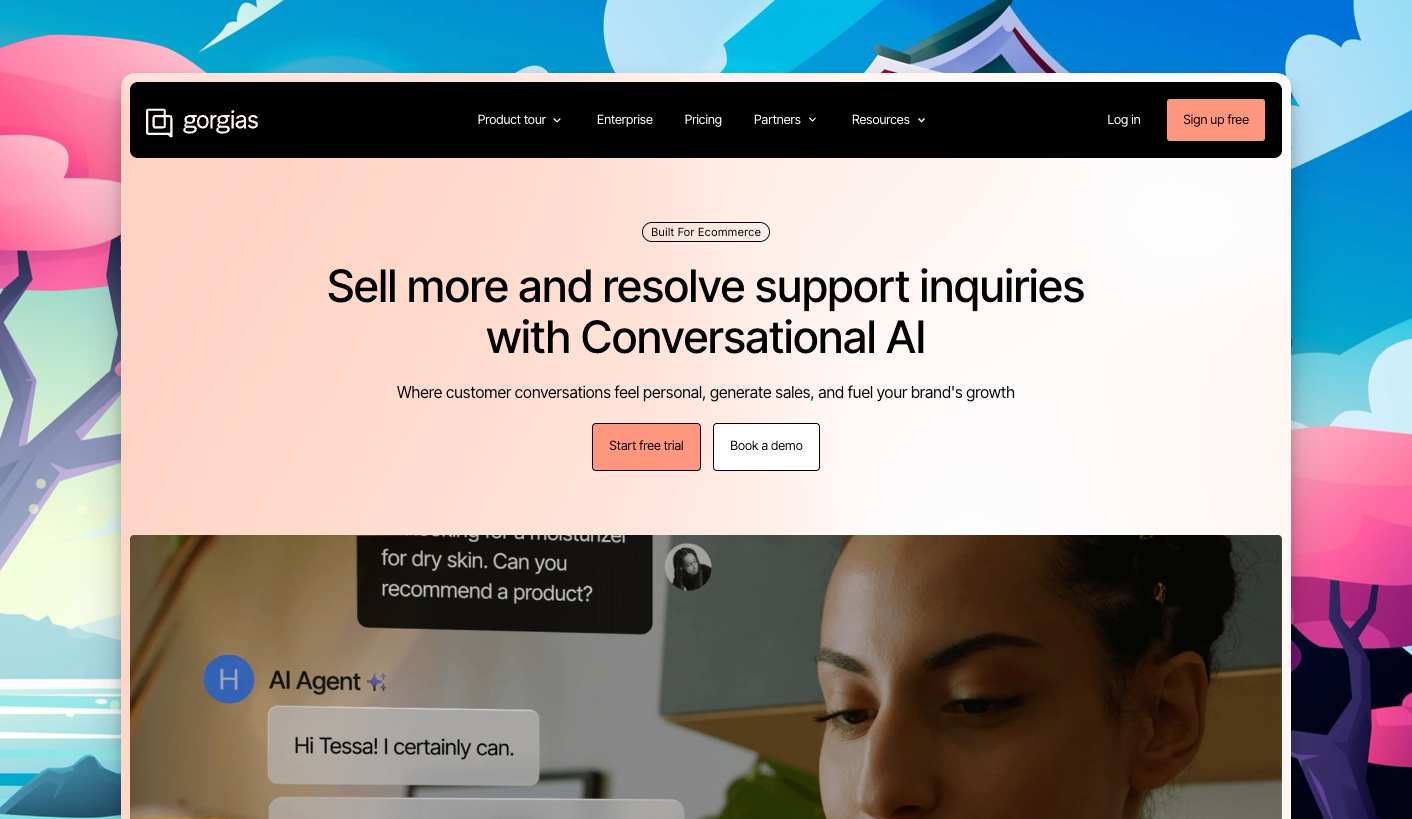
Think of it as the Shopify store owner’s helpdesk sidekick – it pulls in your order data, customer details, and even lets you refund or modify orders without leaving the helpdesk. Perfect if you’re answering “Where’s my package?” all day. The tradeoff? Gorgias lives for eCommerce and a real Intercom alternative but feels out of place for SaaS or B2B support.
All this power doesn’t come cheap (more on that in a bit), and some of Gorgias’s coolest tricks only unlock on higher-tier plans. Now, let’s break down the highs and lows:
👍 Pros
- Ecommerce-first design: Built specifically for online stores with native integrations that let agents edit orders, issue refunds, and manage subscriptions directly from tickets.
- Shopify integration depth: The most seamless Shopify helpdesk integration available, pulling customer data, order history, and product info automatically.
- No per-agent fees: Unlike many helpdesks, Gorgias doesn’t charge per seat on its main plans. In fact, aside from the smallest plan (3 users), all others let you have up to 500 users at no extra cost.
👎 Cons
- Ecommerce-only focus: If you’re not selling products online, Gorgias isn’t for you—the entire platform assumes you’re running an online store.
- Confusing pricing model: Ticket-based pricing with separate charges for voice, SMS, and AI automation makes budgeting difficult as you scale.
- Limited customization outside ecommerce: Great for stores, but lacks flexibility for other business models or custom workflows.
- Paywalls on some features: Be prepared to pay more for certain capabilities. For example, fancy add-ons like phone support (voice integration) or SMS are not included in standard plans – they cost extra per ticket.
Precios del Gorgias
Gorgias uses ticket-based pricing that gets complicated fast:
Base plans:
- Starter: 50 tickets/month at $10/month
- Básico: 300 tickets/month at $60/month
- Pro: 2,000 tickets/month at $360/month
- Advanced: 6,000 tickets/month at $900/month
What looks like $60/month can balloon to $200+ once you add phone support, text messaging, and AI features. The ticket-based model means unpredictable costs during busy seasons like Black Friday.
🌐 Fun Fact: From Chrome Extension to Helpdesk
Gorgias wasn’t always a full-blown helpdesk – it actually started life in 2015 as a Chrome extension for Gmail. The original tool helped customer support reps send faster templated email replies. After getting accepted into Y Combinator, the founders (two French entrepreneurs) realized that the real opportunity was in overhauling eCommerce customer support software, which led to the Gorgias we know today.

Helpdesk Cost Calculator
Stop guessing. Compare real monthly costs for ThriveDesk, Freshdesk, Gorgias, Intercom, and more based on your team size and feature needs.
Why don’t you to give this Intercom alternative a try?
Join thousands of businesses that already trust their customer support to ThriveDesk.


